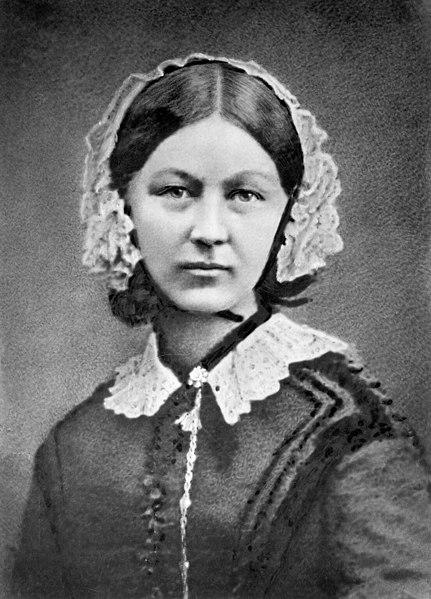
{{PD-US-expired}}
Florence Nightingale (1820 – 1910)
Florence Nightingale, also known as “the Lady with the Lamp,” was a British nurse and social reformer that reduced hospitals’ death rate by two-thirds and improved sanitary conditions of hospitals during the Crimean War.
Nightingale was born on May 12th, 1820 in Florence Italy. At a young age, Nightingale was attending to the ill and poor in her village. By the age of 16, Nightingale experienced “a call from God,” believing she found her divine purpose, nursing. Although her father did not want her to become a nurse, Nightingale enrolled as a nursing student at the Lutheran Hospital of Pastor Fliedner in Kaiserwerth, Germany in 1844.
In 1854, Nightingale received a letter from the Secretary of State at War, asking her to organize a division of nurses to tend to the sick and wounded soldiers fighting in the Crimean War. Upon arrival at the hospital, Nightingale found supplies inadequate, unclean hospital conditions, and extreme overcrowding of patients. Nightingale describes the hospital as “a kingdom of Hell.”
Nightingale would work late into the night, giving personal care to soldiers. Her nightly rounds established the name of “the Lady with the Lamp.” Through her work in the hospital, Nightingale established standards for care, including requiring bathing, clean clothing, and adequate food. Nightingale also put forth efforts to formalize nursing education, leading her to establish the Nightingale School of Nursing, the first scientifically based nursing school, in 1860.
In 1907, Nightingale became the first woman to be awarded the Order of Merit, and in 1974, the International Council of Nurses declared Nightingale’s birthday, May 12th, “International Nurses Day” to commemorate and celebrate the role of nurses.